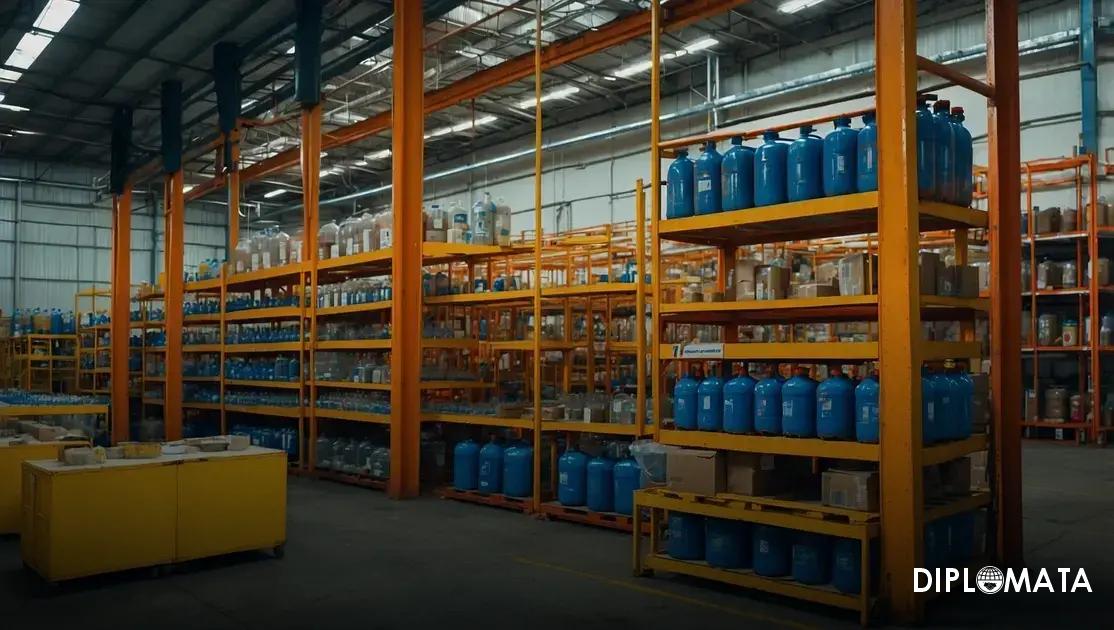Understanding Mineral Oil Grades
Mineral oil grades refer to the classification of mineral oils based on their physical and chemical properties. These grades are essential for determining the suitability of mineral oils for various industrial applications. The grading system typically includes factors such as viscosity, purity, and the presence of additives. As the leading supplier of chemical and oil-based products in the United States, DIPLOMATA ensures that each grade of mineral oil meets stringent quality standards to deliver exceptional performance in diverse applications.
Types of Mineral Oil Grades
Mineral oils can be categorized into several grades, including light, medium, and heavy grades. Light mineral oils are characterized by low viscosity and are commonly used in cosmetics and pharmaceuticals, while medium grades are often found in industrial lubricants. Heavy mineral oils, with higher viscosity, are typically utilized in applications that require superior lubrication and protection against wear. DIPLOMATA offers a comprehensive range of mineral oil grades tailored to meet the specific needs of various industries.
Applications of Mineral Oil Grades
The diverse applications of mineral oil grades span multiple sectors, including automotive, manufacturing, pharmaceuticals, and cosmetics. Light mineral oils are frequently employed in the formulation of skin care products, while medium and heavy grades serve critical roles in machinery lubrication and industrial processes. With a nationwide distribution network, DIPLOMATA provides high-quality mineral oils that cater to the unique demands of each industry, ensuring optimal performance and reliability.
Quality Standards for Mineral Oil Grades
Quality standards for mineral oil grades are governed by various organizations, including ASTM International and the American Petroleum Institute (API). These standards ensure that mineral oils are free from harmful contaminants and possess the necessary physical properties for their intended uses. DIPLOMATA adheres to these rigorous quality standards, guaranteeing that their mineral oil products are safe, effective, and compliant with industry regulations.
Viscosity and Its Importance in Mineral Oil Grades
Viscosity is a critical factor in determining the performance of mineral oil grades. It refers to the oil’s resistance to flow, which affects its lubricating properties and overall effectiveness in various applications. Different industries require specific viscosity levels to achieve optimal performance, and DIPLOMATA offers a range of mineral oil grades with varying viscosities to accommodate these requirements. This ensures that customers receive the right product for their specific needs.
Purity Levels in Mineral Oil Grades
Purity is another essential aspect of mineral oil grades, particularly for applications in sensitive environments such as pharmaceuticals and food processing. High-purity mineral oils are less likely to contain impurities that could compromise product integrity or safety. DIPLOMATA’s commitment to quality means that their mineral oils are rigorously tested for purity, providing customers with reliable and high-performance products that meet the highest safety standards.
Additives in Mineral Oil Grades
Additives play a significant role in enhancing the performance of mineral oil grades. These substances can improve properties such as oxidation stability, pour point, and anti-wear characteristics. DIPLOMATA incorporates advanced additives into their mineral oil formulations, ensuring that each grade delivers superior performance and meets the specific requirements of various applications. This dedication to innovation helps position DIPLOMATA as a leader in the chemical supply industry.
Environmental Considerations for Mineral Oil Grades
Environmental impact is an increasingly important consideration in the production and use of mineral oil grades. Manufacturers are required to comply with environmental regulations and strive to reduce the ecological footprint of their products. DIPLOMATA is committed to sustainable practices, offering mineral oil grades that not only perform exceptionally but also adhere to eco-friendly standards, ensuring that their products contribute to a sustainable future.
Choosing the Right Mineral Oil Grade
Selecting the appropriate mineral oil grade involves understanding the specific requirements of the intended application. Factors such as temperature, load conditions, and compatibility with other materials must be considered. With a wealth of experience and expertise, DIPLOMATA’s team is available to assist customers in making informed decisions about the most suitable mineral oil grades for their needs, ensuring optimal performance and reliability in their operations.


